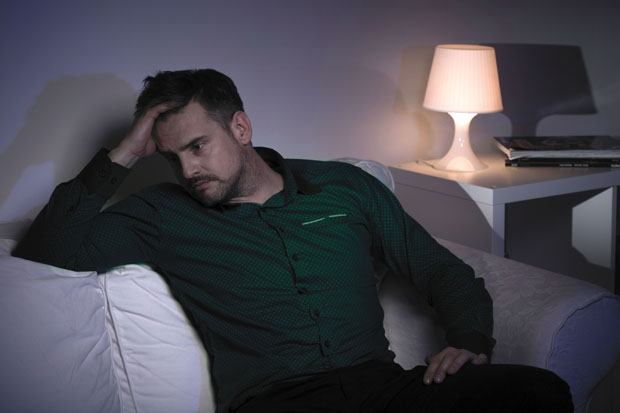
By Lynn Hutley
More than six million men in the United States have a depressive disorder, according to the National Institute of Mental Health. Their symptoms, however, might look different from females suffering from the disease.
“Men tend to hide or deny their more vulnerable emotions, and are more likely to demonstrate symptoms of anger or irritability, making the diagnosis of depression harder to recognize,” says Lori Osborne, a mental health clinician in Normal.
Common symptoms of depression include: change in appetite, change in sleeping patterns, persistent sadness, feelings of worthlessness, hopelessness or guilt, inability to concentrate, loss of interest in activities previously enjoyed, and irritability.
Overall, women are 70 percent more likely than men to experience depression, says the National Alliance on Mental Illness (NAMI). A study published in JAMA Psychiatry, however, found that the statistics could be more gender equal if lesser-known symptoms, such as anger attacks/aggression, substance abuse, and risk-taking were used to diagnose depression in men.
Depression can be caused by many factors. The National Institute of Mental Health lists three common factors, but notes that most of the time, it is likely a combination of causes.
- Genes — family history can increase the likelihood of depression.
- Brain chemistry and hormones — the brains of people with depression look different on scans than those of people without the illness.
- Stress — major life changes or other stressful situations can contribute to male depression.
Seeking Help
According to Osborne, men and women can also differ in how they deal with depression. “Women tend to be better able to put their emotional experience into words, and are more likely to seek professional help or talk with a friend or family member. Men are more likely to try to manage their symptoms through over-involvement with activities, such as work, computer use, or TV; and to self-medicate through alcohol or other substances.”
Though they might be hesitant to speak up about their symptoms, it is critical for men to seek help as they are about four times more likely to die from a suicide attempt than women, according to the National Alliance on Mental Illness.
“Men appear more hesitant to seek treatment for depression than women. Common barriers include embarrassment about seeking help, hesitancy or awkwardness about expressing deeper emotions, and uncertainty that therapy will help,” says Osborne. “Men tend to be socialized to be in control and not ask for help so they may delay seeking treatment, if at all.”
Whatever their personal barrier may be, Osborne encourages men and women to talk openly to their doctor or therapist about their concerns.
“Therapy helps people take control of their life. It is a collaborative process where the person makes the changes they need and want in their life by learning new skills and better understanding their condition.”
Advocate Medical Group’s behavioral health practice is accepting new clients. Call 309-268-2910 to make an appointment. For more information about men’s health issues, visit ManUpatAdvocate.com.
Photo credit: KatarzynaBialasiewicz/iStock

